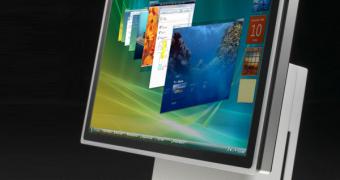There is so much life left into Windows, and Microsoft is gearing up for the moment when it completely runs out of what is now its proprietary operating system. In this context, the Redmond company is cooking a couple of non-Windows operating systems labeled Singularity and Midori. Singularity, a platform prototype written in managed code, is already out and available for download but only as a research project. Based on Singularity, Midori is designed as the first componentized Microsoft operating system meant to virtually reinvent the proverbial wheel.
According to SDTimes, Midori will be focused not on the desktop as Windows was, but on the cloud and on connected systems. With Windows 7, Microsoft is already bridging the operating system with Windows Live, but Midori will take this aspect one step further in the quest for what will end up as the first fully-fledged Software + Services platform from Microsoft.
What Microsoft has to ensure with Midori is the preservation of the compatibility with the ecosystem of hardware and software products built around Windows. Set up to run on x86, x64 and ARM native hardware, Midori will need to ensure at least a certain degree of continuity with existing Windows products. This will supposedly be achieved through ensuring interoperability or delivering a streamlined migration process.
Additionally, by the time Midori will be out, long after Windows 7, and maybe Windows 8, the environment of existing solutions would have already transitioned to a combination of both local and distributed (remote solutions). This is why Midori will reportedly deliver an asynchronous-only architecture. The end purpose in this respect is for the platform to be optimized for task concurrency and parallel processes and services.
But perhaps one of the most revolutionary aspects of Midori, and one which cannot be achieved solely through the evolution of the Windows platform, is complete componentization. Following its introduction, Microsoft would simply evolve Midori by components, and not as Windows mammoth releases. A benefit of such architecture is the separation of both critical and non-critical areas of the platform. In this regard, Microsoft will be able to offer new security boundaries, a task impossible with Windows' current design, except if the company looks to break compatibility with the vast majority of software and hardware products.

 14 DAY TRIAL //
14 DAY TRIAL //